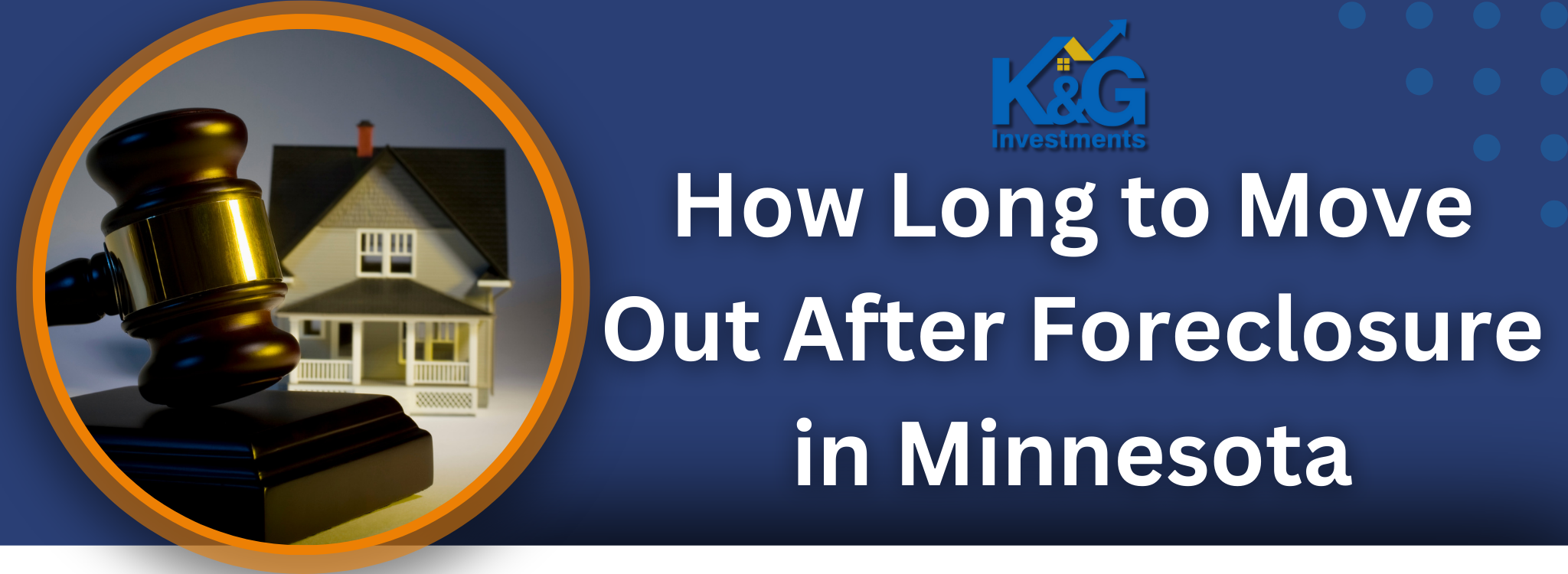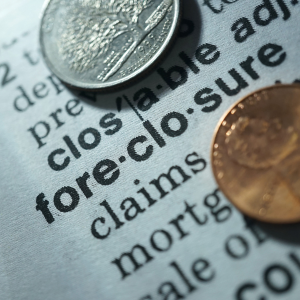
What Happens After a Foreclosure Auction in Minnesota?
Key Steps Following a Foreclosure Auction

What is the Process of Notifying Occupants?
In Minnesota, lenders must notify occupants after a foreclosure auction. The notification process begins once the sheriff’s sale, which is the public auction, is over. The buyer has to tell the people living in the property about their new status. Notifying occupants after the foreclosure sale is integral to the state’s foreclosure process timeline and informs them about upcoming evictions.
- Sheriff’s Sale: This is Where the property gets sold publicly.
- Notice to Occupants: A legal notice is given to those living in the home, letting them know about the change in ownership.
How is Ownership Transferred after an Auction?
After the auction, the property’s ownership changed based on Minnesota’s mortgage foreclosure law. The new owner will take possession, but some legal steps might take time.
- Title Transfer: The new owner receives a deed to officially transfer ownership after the auction.
- Property Possession: According to Minnesota foreclosure laws, the new owner can take over the property once the redemption period ends.
The Role of the Sheriff’s Office in Minnesota
When Does the Sheriff Post an Eviction Notice?
The sheriff’s office is key in the eviction process. In Minnesota, they post an eviction notice only after meeting all legal requirements.
- Eviction Notice Requirements: Notices must follow Minnesota’s legal guidelines before being posted.
- Legal Eviction Process: Ensures everyone follows state laws during eviction.
How Does the Sheriff’s Sale Affect Eviction Timelines?
The sheriff’s sale impacts how quickly eviction happens after foreclosure. Both new owners and former occupants need to understand this.
- Sheriff’s Sale Process: Sets the start of the legal eviction process.
- Eviction Timeline: Details the schedule and actions leading to a possible eviction.
Understanding the Redemption Period
What is the Standard Redemption Period in Minnesota?
In Minnesota, the redemption period allows homeowners to reclaim their property after the foreclosure auction. During this time, the previous owner can repay what they owe to get their home back.
- Redemption Period: Usually six months, giving time to regain ownership.
- Right of Redemption: A legal right for former homeowners to settle debts and recover their property.
Are There Extensions or Exceptions to the Redemption Period?
Under Minnesota law, the court can extend the usual redemption period or make exceptions.
- Redemption Period Exceptions: Some conditions might change the usual timeframe.
- Rights of Former Homeowners: Possible extensions depend on factors like property type or who lives there.
For more advice, contact K&G Investments. They offer expert guidance on dealing with post-foreclosure situations and understanding your rights as a homeowner or investor in Minnesota.
How Can You Prepare for Moving Out Post-Foreclosure?
Assessing Your Financial Situation

When you face eviction after a foreclosure sale, it’s time to look at your money situation. Knowing what cash you have can help you figure out your next moves. Check if you qualify for relocation assistance or any financial aid for evicted homeowners in Minnesota. Seeking legal and financial assistance can support you during this challenging period. Talking to a financial counselor can also give you a clearer picture of your options and help you plan better.
Locating New Housing Options
Finding a new home should be a top priority. Look at affordable housing programs and other assistance options in Minnesota. Each program has its rules, so see which fits your needs best. Learn about Minnesota housing court procedures and the post-foreclosure eviction process to help you navigate these systems. Doing this can help you get stable housing even after a foreclosure.
Creating a Moving Plan
Once you know how much time you have, start planning your move. Be clear on the eviction timeline post-foreclosure. Understanding your rights includes knowing when you must leave the property after it sells. Planning your move well means working with post-auction property managers and ensuring you move smoothly to your next home. List things to do to manage your time and reduce stress.
What Rights Do Renters Have After a Foreclosure Purchase in Minnesota?
Tenant Protection Laws

In Minnesota, renters retain their rights when landlords foreclose on their rental homes. Knowing these rights helps tenants during tough times.
- Tenant Rights: If your rental property is foreclosed and sold, you can usually stay until the end of your lease. This law gives renters stability during ownership changes.
- Foreclosure Impact on Renters in Minnesota: Renting a home that gets foreclosed does not mean eviction right away. The Protecting Tenants at Foreclosure Act (PTFA) says your lease is valid even after foreclosure.
- Eviction Notice Requirements: New property owners must give a written eviction notice in Minnesota. Typically, tenants with a valid lease receive a 90-day notice before moving out.
- Legal Eviction Process in Minnesota: For an eviction to be legal, it must follow Minnesota’s rules and usually require a court order. Tenants should get help if they are unsure about their rights during this time.
Navigating Lease Agreements
Foreclosure can affect lease agreements, but understanding your situation can make the change easier.
- Lease Agreements: If you have a lease and the property is foreclosed, ask the new owner whether they will honor it. Most leases stay active even after foreclosure.
- Foreclosure Auction: After a foreclosure auction, the new owner becomes your landlord. They might keep your current lease or offer a new one.
- Existing Leases: Tenants with existing leases should get clear communication from the new owner about their status. Make sure your lease terms are unchanged by asking them directly.
- Property Possession Post-Foreclosure: When the property changes hands, renters need to know how and when they should give up possession if required.
Seeking Legal Advice and Support
Handling foreclosure outcomes can be challenging, and getting professional help is often helpful.
- Legal Assistance Foreclosure Minnesota: Some groups and lawyers are knowledgeable about housing laws and can help you understand your rights and options.
- Eviction Moratorium Minnesota Updates: Stay informed about eviction limits to avoid being evicted too soon. Minnesota’s eviction limits changed due to COVID-19, which could affect renters.
- Foreclosure Process Timeline Minnesota: Learn about the foreclosure timeline in Minnesota so you know when significant changes might happen in your rental situation.
- Housing Court Procedures: If you’re facing eviction or disputes, the Minnesota Housing Court can help. Knowing its procedures ensures you’re prepared to defend your rights.
What are the legal and logistical steps for eviction post-foreclosure?
Eviction Process Overview

Evictions after foreclosure can be challenging for many renters in Minnesota. Knowing the eviction process timeline is essential to get through it smoothly. Once the bank or buyer forecloses on a home, the new owner might begin eviction to take legal control. The post-foreclosure eviction process has a few steps:
- Notification: The new owner provides a written notice to vacate the property.
- Filing: The new owner files an eviction complaint in court.
- Hearing: The court schedules an eviction hearing to decide the outcome.
Minnesota’s specific eviction laws outline the processes landlords and tenants must follow. Understanding these can help reduce stress and prepare you for what’s ahead.
Role of Courts and Legal Proceedings
Courts are crucial in managing eviction cases in Minnesota. Minnesota’s housing court procedures ensure that evictions happen legally and fairly. During proceedings, tenants have the right to present their case. Getting foreclosure legal assistance in Minnesota can offer help and support during an eviction hearing.
Knowing your rights and exploring options is essential if you’re seeking to delay eviction in Minnesota. Requesting a legal review or negotiating with the new owner could help extend your time in the home.
Timing and Execution of Eviction
Knowing the timing and execution of eviction helps plan your next steps. Here’s a general timeline after a foreclosure:
- Initial Notice: After the auction, tenants receive a notice with the timeframe for leaving a foreclosed home.
- Court Proceedings: If you do not vacate, the owner may begin legal proceedings.
- Eviction Order: The court may issue an order requiring you to leave the property within a set period.
The timeframe to vacate the property after an auction varies. An overview of Minnesota eviction laws can help you understand what to expect. The eviction timeline post-foreclosure usually ranges from a few weeks to a month, depending on court schedules and other factors.
For more support and information, contact local resources or legal aid services focused on housing issues. K&G Investments actively guides and supports those facing financial challenges and housing uncertainties.
How to Rebuild Your Life After Foreclosure?
Financial Recovery and Stability

Facing foreclosure is tough, but you can get back on track. Start with these steps:
- Seek Financial Aid: Look for programs that offer financial aid for evicted homeowners. They can provide the help you need.
- Understand the Foreclosure Timeline: Learn about the timeline for completion of the foreclosure process. Understanding your options will help you plan your next steps more effectively.
- Rebuild Credit Post-Foreclosure: Work on improving your credit score. Pay your bills on time, lower your debt, and check your credit report for mistakes.
- Manage Finances Effectively: Create a budget and stick to it. Creating a solid financial plan will help you gain stability and avoid future problems.
Emotional and Community Support
Getting through a foreclosure also means finding support. Here’s how you can get help:
- Connect with Community Resources: Many groups can help you after surviving foreclosure in Minnesota or elsewhere. Check out local shelters or non-profits for help with housing stability post-foreclosure.
- Find Emotional Support: Talk to friends, family, or counselors. Emotional support is essential during this time.
- Seek Assistance During This Time: Reach out to community groups or online forums where people share their experiences and advice.
Planning for Future Financial Security
Planning is key to a safer financial future. Try these ideas:
- Explore Foreclosure Delay Strategies: There might be strategies to delay foreclosure in places like Minnesota. Negotiating with the new owner or seeking legal assistance can give you more planning time.
- Plan for Financial Security: Build a financial safety net by saving regularly and making smart investments.
- Prevent Future Foreclosure: Learn ways to prevent foreclosure, such as knowing your loan terms and staying current on payments.
- Create a Financial Safety Net: Save enough money to cover several months of expenses to prepare you for surprises.
At K&G Investments, we are here to guide and support you. If you need more advice or have questions, reach out or check our website for resources. Your path to rebuilding your life after foreclosure matters to us, and we’re here to help you along the way.
FAQs:
How long can I stay in my home after a foreclosure auction in Minnesota?

You can stay home for six months after a foreclosure auction in Minnesota. The redemption period allows you to pay the owed amount or plan your move.
What steps should I take to understand the foreclosure process in Minnesota?
To understand the foreclosure process in Minnesota, look up state rules and consider talking to local experts or lawyers. Knowing your rights and what you need to do can help you handle the situation better.
Can I redeem my property after the foreclosure auction?
Yes, you can return your property during the six-month redemption period in Minnesota. You’d need to pay the auction price plus any extra costs from the foreclosure process.
What happens if I need more time to move out after the foreclosure sale?
If you need more time to move out, you can talk with the new owner to extend your stay. You can also seek advice from a legal expert on how you might delay eviction.
Are there resources available to assist homeowners post-foreclosure?

Yes, some resources can help. County offices can inform you about surplus funds. There are also organizations offering guidance on housing stability and financial management.
How can I prevent foreclosure in Minnesota?
To prevent foreclosure, understand your mortgage terms, get financial counseling, and explore foreclosure prevention programs. Quick action can help avoid reaching the auction stage.
Where can I find more information on Minnesota foreclosure laws?
For detailed information, check Minnesota’s government websites or ask legal professionals who know about foreclosure laws. They can give you the latest advice and help.
Is it possible to postpone a foreclosure auction in Minnesota?
Yes, you might be able to postpone a foreclosure auction by negotiating with your lender or showing financial hardship. Getting legal help can make exploring these options more manageable.
Key Insights
- Knowing your redemption rights after a foreclosure auction in Minnesota is essential. You might have up to six months to get your property back by filing an affidavit with the county recorder’s office.
- If you live in your home as a homestead, be aware of the statutes that allow for a redemption period. This period might be extended under Minnesota state laws, especially if you file certain forms or affidavits.
- It’s wise to talk to a legal expert to understand the timeline for finishing the foreclosure process. They can explain how the original principal amount and extra costs are figured out.
- For more information on how to stop a foreclosure auction, contact local housing authorities or nonprofits. They can provide support and guidance.
- To get any extra money back after the auction, you might need to show papers like written consent or proof of residency. Check with the county recorder’s office for details.
- In a foreclosure by advertisement, make sure all legal steps are followed. This includes ensuring any orders were conducted according to state law and checking if you received all notices.
- If your property is up for a court-ordered sale, knowing how to redeem it can help keep your housing stable. Getting legal advice will help you understand your options.
- If you’re facing money problems, you should consider filing for security measures, like a claim against a reserve fund, or getting low-cost legal help.
- Our site provides resources and answers to questions about the foreclosure process, including tips for managing property post-auction and ways to delay foreclosure in Minnesota.
- If you need help, call to schedule a consultation. Our team is ready to assist you during this challenging time.
This information applies to Minnesota and its cities, including Minneapolis, St. Paul, Minnetonka, Plymouth, and more. For more details, please call us at (612) 400-8070 or visit our website at K&G Investments.
Additional Resources For Minnesota Sellers


